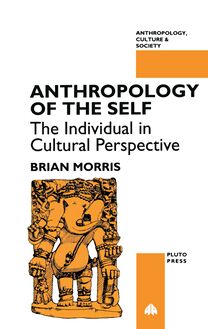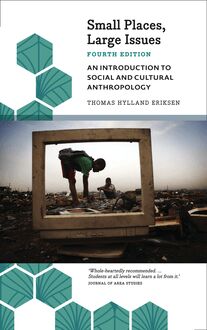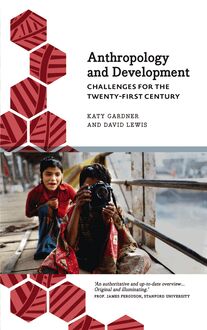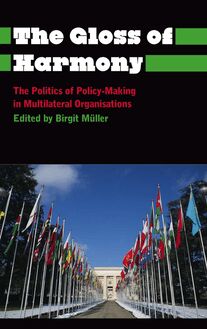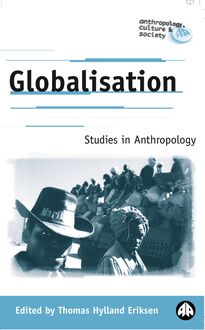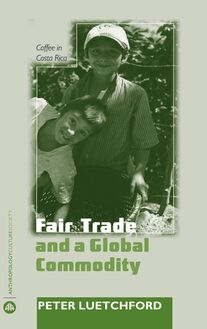-
 Univers
Univers
-
 Ebooks
Ebooks
-
 Livres audio
Livres audio
-
 Presse
Presse
-
 Podcasts
Podcasts
-
 BD
BD
-
 Documents
Documents
-
- Cours
- Révisions
- Ressources pédagogiques
- Sciences de l’éducation
- Manuels scolaires
- Langues
- Travaux de classe
- Annales de BEP
- Etudes supérieures
- Maternelle et primaire
- Fiches de lecture
- Orientation scolaire
- Méthodologie
- Corrigés de devoir
- Annales d’examens et concours
- Annales du bac
- Annales du brevet
- Rapports de stage
La lecture à portée de main
Découvre YouScribe en t'inscrivant gratuitement
Je m'inscrisDécouvre YouScribe en t'inscrivant gratuitement
Je m'inscrisEn savoir plus
En savoir plus

Description
Using a wide theoretical framework that encompasses both anthropology and geography, Katharine Rankin critiques neoliberal approaches to development, showing that the capitalist market will always be linked to local social structures and cultures of value. Market-led development, therefore, does not necessarily expand opportunity; rather it can deepen existing injustic and inequality.
Using the example of a 'traditional' Newar market town located in the Kathmandu Valley in Nepal, Rankin explores how the 'value' ascribed to social prestige relates to economic opportunity. Showing how those in subordinate social locations are positioned to critique inequality, Rankin argues that planners should pursue progressive notions of development that recognise the critical resources within culture.
1. Cultural Politics of Markets
2. Anthropologies and Georgraphies of Globalisation
3. Genealogy of Markets and Exchange
4. Newer Representations of Finance
5. Caste and Gender Economies
6. Global-Local Articulations in an age of Neoliberalism
7. Planning and Development
Sujets
Informations
| Publié par | Pluto Press |
| Date de parution | 20 avril 2004 |
| Nombre de lectures | 0 |
| EAN13 | 9781849641616 |
| Langue | English |
| Poids de l'ouvrage | 4 Mo |
Informations légales : prix de location à la page 0,6250€. Cette information est donnée uniquement à titre indicatif conformément à la législation en vigueur.
Extrait
THE CULTURAL
POLITICS OF MARKETS
Economic Liberalization
and Social Change in Nepal
KATHARINE NEILSON RANKIN
Pluto P Press
Rankin 00 prelims 3 16/2/04 11:21:51 amFirst published 2004 by Pluto Press
345 Archway Road, London N6 5AA
www.plutobooks.com
Copyright © Katharine Neilson Rankin 2004
The right of to be identified as the author of this
work has been asserted by her in accordance with the Copyright, Designs
and Patents Act 1988.
British Library Cataloguing in Publication Data
A catalogue record for this book is available from the British Library
ISBN 0 7453 1945 9 hardback 1944 0 paperback
10 9 8 7 6 5 4 3 2 1
Designed and produced for Pluto Press by
Chase Publishing Services, Fortescue, Sidmouth, EX10 9QG, England
Typeset from disk by Stanford DTP Services, Northampton, England
Printed and bound in the European Union by
Antony Rowe Ltd, Chippenham and Eastbourne, England
Rankin 00 prelims 4 16/2/04 11:21:51 amCONTENTS
Acknowledgements vi
Glossary viii
Introduction 1
1. The Cultural Politics of Markets 14
2. Anthropologies and Geographies of Globalization 41
3. Genealogy of Markets and Exchange 73
4. Newar Representations of Finance: Toward an
Anthropology of Profit 103
5. Caste and Gender Economics 129
6. Global–Local Articulations in an Age of Neoliberalism 164
7. Planning and Development 187
Notes 204
Bibliography 220
Index 235
LIST OF MAPS
3.1 Kathmandu Valley and Nepal in relation to the South Asian
region 74
3.2 Two overland trade routes through the Kathmandu Valley 77
3.3 Map of Sankhu showing significant thoroughfares and
structures 82
3.4 Ancient overland trade routes in relation to contemporary
political boundaries on the Indian subcontinent 87
v
Rankin 00 prelims 5 16/2/04 11:21:51 amACKNOWLEDGEMENTS
In Nepal many friends and teachers helped make my time productive and
enjoyable. Thanks go especially to Madan Gopal Shrestha for research
assistance and to Beku Laksmi Shrestha for ongoing commentary on
Newari culture. The households of Hari Gopal Shrestha and Basu Dev
Joshi welcomed me with particularly generous hospitality, and Bindra Joshi
offered sisterly companionship. Bal Gopal Shrestha and the late Bert van
den Hoek provided intellectual companionship during the research and
commented extensively on the ethnographic chapters here. Sri Laksmi
Shrestha and Bina Pradhan contributed especially thoughtful insights
on the perspectives of Newari women and possibilities for a feminist
consciousness among them. Surendra Rajopadhyay and the late Panchalal
Joshi gave generously of their vast knowledge of the religious and ritual
dimensions of Newar society. Sarla Shrestha, Pratima Shrestha, Madan
Gopal Shrestha, Raju Shrestha and Dhana Prasad Panday assisted with
transcriptions and translations from oral and archival sources.
The research was supported by a Fulbright grant from the US Education
Foundation in Nepal, as well as two short-term grants from the Mario
Einaudi Center for International Studies at Cornell University and an
‘Assistance for New Researchers’ grant from the Social Sciences and
Humanities Research Council (Canada). An earlier version of Chapter 2
has been published in Progress in Human Geography (as ‘Anthropologies
and Geographies of Globalization’, 27(6): 708–34); and parts of Chapter
5 appear in Gender, Place and Culture (as ‘Cultures of Economies:
Gender and Socio-spatial Change in Nepal’, 10(2): 111–29). In both
cases the editor has granted permission for reprinting.
I have benefited from critical readings by colleagues in Ithaca and
Toronto, and co-panellists at conferences of the American Association
of Geographers, including Stuart Corbridge, Amrita Daniere, Katherine
Gibson, Kanishka Goonewardena, Ben Kohl, Vicky Lawson, Lauren Leve,
Margit Mayer, Norma Rantisi, Susan Ruddick, Gavin Smith and Kathy
White. Meric Gertler offered invaluable advice about the publication
vi
Rankin 00 prelims 6 16/2/04 11:21:51 amAcknowledgements vii
process. Banu Oja and Shambhu Oja provided many years of Nepali
instruction and friendship that crucially underpin the research. Leah
Birnbaum and Chris Cavanagh provided editorial assistance, and the index
was compiled by Alan Yoshioka. Over the years my doctoral committee
members gave just the right balance of support and criticism: thanks go
to Susan Christopherson for sustaining my interest in market structures;
to Lourdes Benería for encouraging me to keep a gender analysis at the
forefront of my work; and to Kathryn March for inspiring me with her
incomparable commitment to ethnographic methods and cross-cultural
study. At Pluto, Julie Stoll consistently offered prompt, friendly and
always-exactly-right advice for which I am very grateful. Virgil Duff
at University of Toronto Press provided useful last-minute suggestions
about the orientation of the introduction. Both found wonderful reviewers
whose comments enriched the manuscript enormously.
Zachary Thomas was with me for part of the field research; I thank
him for his steady stream of fresh insights, as well as for all his support
and companionship then and since, which have played a major role in
the production of this book. I dedicate the book to my parents, Mary
Louise Backus Rankin and Douglas W. Rankin, among whose many
contributions was a pressing impatience to see it done. They also donated
last-minute editing services – and, of course, bear full responsibility for
everything contained herein!
Rankin 00 prelims 7 16/2/04 11:21:51 amGLOSSARY OF NEWARI AND NEPALI TERMS
Note that Nepali words are denoted by (Nep.)
adhiy a Form of rent, amounting to half of the summer rice
crop
angsa Inheritance, patrilineal
argha Conch-shaped vessel used for offering oblations to the
deities
as anti State of disorder
bagya luck, good fortune
baha Buddhist monastery
baji Beaten rice, considered ‘safe’ for consumption among
mixed-caste company, as it does not bear ritual
pollution
bañj ari Middleman, wholesaler
bejat Shame
Bh a Funeral priest caste
bhal adami Gentleman
bhiksu Buddhist monk; in Vajrayana Buddhism, priests are
householders, but Pancadana is the only occasion
among Newars when they assume the posture of monks
– priests who have renounced this-worldly obligations
and beg for alms.
bhvay Feast
birt a Land allocated by the state to remunerate local
functionaries for carrying out administrative duties
bodhisattva One who has reached nirvana and returned to the world
of suffering in order to assist others in reaching the goal
of enlightenment
bu µbhari Local functionary charged with monitoring and resolving
disputes over land – a position that was abolished after
1951 with the end of Rana rule
caitya Small, domed shrine
camkha Clever
c anakya Newari book of proverbs
viii
Rankin 00 prelims 8 16/2/04 11:21:51 amGlossary ix
che µbhari Local functionary charged with resolving disputes
surrounding the division of household property – a
position that was abolished after 1951 with the end of
Rana rule
Chip a Dyer caste
choke by aj Local interest rate paid in kind, commonly Nrs 0.02/Nrs
100/month
cipa Ritually polluted, leftover food
Citrak ar Painter caste
daijo Nep., dowry
Dak ßi ñapatha Ancient trade route traversing from the Gangetic plain
south to the Deccan plain
dak ßi ña Cash payments made to priests as remuneration for
service
dalah pau List of dowry items received during marriage rites
dam Coin; four dam is the equivalent of one paisa; there are
100 paisa in one rupee
dana Gift, presented to a ritually designated recipient, that
enables the donor to alleviate misfortune or sin by ritual
means
Danya Caste serving as death specialist, barber and funeral
priest for the Jogi caste
dasa Inauspiciousness, misfortune
desa sacred realm, country
dharma Worship, religious practice, right action
∂hi∂o A thick cereal made from winter crops – wheat, corn or
millet – and considered to be low-status food
∂hiku †i Nep., treasury; a bidding game, or a form of rotating
credit group
dhy ake by aj local interest rate paid in cash, commonly Nrs 1/Nrs
1,000/day
dhv ak a Gate, door
digu dyo Lineage deities, associated with each Newar lineage
group
digu dyo guthi Local association through which members of a lineage
group organize the worship of lineage deities
Dom Drum player caste, duck raisers
duare Local functionary, appointed to collect taxes and
administer local justice – a position that was abolished
after 1951 with the end of Rana rule
Dui µ Palanquin carrying caste, trumpeters
galli Laneway
Rankin 00 prelims 9 16/2/04 11:21:51 amx The Cultural Politics of Markets
Gathu Gardener caste
ghiu kh ane Nep., supplicatory gifts offered to a money-lender
go ß †hi Ancient Indian common interest group and precursor to
Newar guthi
Gubh adyo Deities of the Forest Monastery, Gum Vihara
Gu µ Vih ara Forest Monastery, ancient Buddhist monastery located
on the hillside north of Sankhu
Guruju Colloquial for Buddhist priest
guthi Place-based associations, primarily organized by lineage,
or around the worship of a particular deity or obligations
to perform death rituals
hul aki Postal service associated with the Tibet trade – a system
that was abolished after 1951 with the end of Rana rule
hundi Foreign exchange service organize to finance Tibet
trade
ihi Girls’ initiation rite
ij ara Form of commission awarded to local functionaries for
performance of governmental duties – a system that was
abolished after 1951 with the end of Rana rule
ijat Honour
is †a mitra Nep., friends and relations
j agir Form of land grant assigned by the state in lieu of a cash
income as salary for its employees or functionaries – a
system that was abolished after 1951 with the end of
Rana rule
jajam ana Patron (of other castes)
jajm ani Patron–client system
jap Telling the beads
j ati Caste
je †hi Eldest daughter or daughter-in-law
jh ara System of corvée-like compulsory labour dating from
Malla and Rana periods
jimiw al Loca
-
 Univers
Univers
-
 Ebooks
Ebooks
-
 Livres audio
Livres audio
-
 Presse
Presse
-
 Podcasts
Podcasts
-
 BD
BD
-
 Documents
Documents
-
Jeunesse
-
Littérature
-
Ressources professionnelles
-
Santé et bien-être
-
Savoirs
-
Education
-
Loisirs et hobbies
-
Art, musique et cinéma
-
Actualité et débat de société
-
Jeunesse
-
Littérature
-
Ressources professionnelles
-
Santé et bien-être
-
Savoirs
-
Education
-
Loisirs et hobbies
-
Art, musique et cinéma
-
Actualité et débat de société
-
Actualités
-
Lifestyle
-
Presse jeunesse
-
Presse professionnelle
-
Pratique
-
Presse sportive
-
Presse internationale
-
Culture & Médias
-
Action et Aventures
-
Science-fiction et Fantasy
-
Société
-
Jeunesse
-
Littérature
-
Ressources professionnelles
-
Santé et bien-être
-
Savoirs
-
Education
-
Loisirs et hobbies
-
Art, musique et cinéma
-
Actualité et débat de société
- Cours
- Révisions
- Ressources pédagogiques
- Sciences de l’éducation
- Manuels scolaires
- Langues
- Travaux de classe
- Annales de BEP
- Etudes supérieures
- Maternelle et primaire
- Fiches de lecture
- Orientation scolaire
- Méthodologie
- Corrigés de devoir
- Annales d’examens et concours
- Annales du bac
- Annales du brevet
- Rapports de stage
